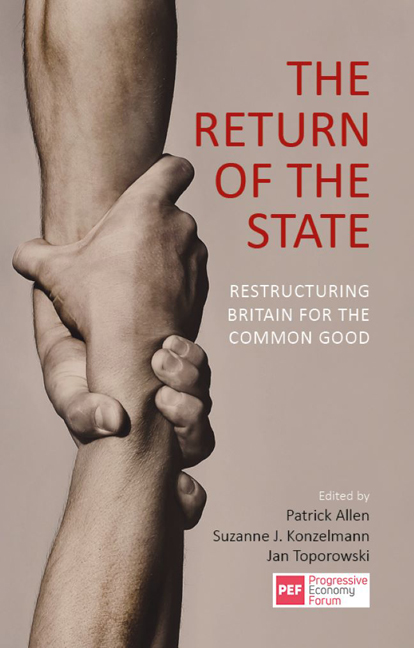19 - Progressive tax reform
Published online by Cambridge University Press: 22 December 2023
Summary
The Covid-19 crisis has thrown the fault lines of the United Kingdom's unequal and divided society into sharp relief. A decade of cuts has degraded state capacity, hampering the official response to the virus and exposing entrenched inequalities of income and wealth, deep divides in health and sharp geographical disparities. The scale of the interventions needed to place a floor under incomes during the crisis highlights the ineffectiveness of the social safety net provided by the British state.
There is little public support for the reshaping of the public sector that has taken place over recent decades. Survey evidence shows scant enthusiasm for either the long-run shift to greater tax regressivity or the post-2008 cuts to the public sector. In response to polling questions, the British public increasingly express a desire for greater state capacity and provision, alongside higher taxation to support that capacity.
Long-run demographic change adds to the pressure for reform of the British state. It is something of a cliché to argue that the British public desire Scandinavian-style public services alongside a US-style taxation regime – but the evidence increasingly shows that this is not a fair characterization: the British public want a state that works, and they are prepared to pay for it, especially if they regard the distribution of taxation as fair. Public attitudes to the loopholes and exemptions that allow those at the top of the income distribution to pay less demonstrate that people understand the unacceptability of those at the bottom facing higher marginal tax rates than those at the top.
If we are to face the challenges of the coming decades, from the pandemic and its aftermath to climate change, automation and ageing, a restoration of state capacity is essential and, indeed, inevitable. An effective state requires a stable, robust and fair tax base. Reform of the UK tax system is long overdue.
Vision for change
A new social contract between the British government and its citizens is urgently needed: a contract based on a well-functioning state that provides high-quality public services for all citizens without discrimination, protects the poorest and most vulnerable and provides a decent and comprehensive social safety net. This is what the majority of the British public say they want.
- Type
- Chapter
- Information
- The Return of the StateRestructuring Britain for the Common Good, pp. 223 - 232Publisher: Agenda PublishingPrint publication year: 2021



